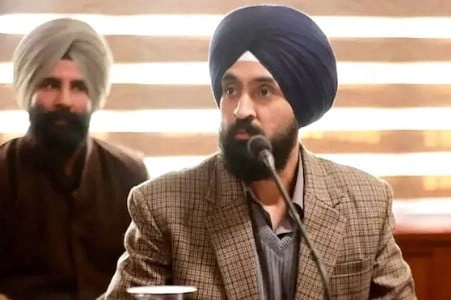Honey Trehan, a prominent figure in the Indian film industry, recently opened up about his experiences surrounding the production of “Punjab ’95,” a film that has generated significant buzz and controversy. The project, featuring the talented Diljit Dosanjh, touches upon sensitive historical themes that resonate deeply with the audience. Trehan expressed his struggle to articulate the emotional weight of the film and the challenges faced while navigating the complex landscape of the Central Board of Film Certification (CBFC). The emotional intensity of “Punjab ’95” reflects the tumultuous history of Punjab during the 1990s, a period marked by political unrest and social strife.
The film’s narrative delves into the lives of individuals caught in the crossfire of this historical turbulence, aiming to shed light on the human experiences overshadowed by conflict. Trehan emphasized the importance of telling these stories authentically, as they serve as a reminder of the past and its lingering impact on society today. However, the journey to bring “Punjab ’95” to the screen has not been without obstacles. The CBFC’s scrutiny and demands for edits have posed significant challenges, prompting Trehan to advocate for artistic freedom and the necessity of presenting history with honesty and integrity.
In discussing the CBFC’s role, Trehan conveyed his frustration with the censorship that often stifles creative expression. He believes that filmmakers should have the liberty to explore complex subjects without fear of retribution or compromise. The battle with the CBFC is emblematic of a broader issue within the Indian film industry, where artistic vision frequently clashes with regulatory constraints. Trehan’s commitment to his craft is evident, as he navigates these challenges while remaining steadfast in his belief that stories like “Punjab ’95” deserve to be told in their entirety.
Overall, Honey Trehan’s insights into “Punjab ’95” illuminate the delicate balance between storytelling and censorship in contemporary cinema. His dedication to portraying the realities of the past underscores the importance of understanding history in shaping our present and future. As audiences await the film’s release, Trehan’s reflections serve as a poignant reminder of the power of cinema to foster dialogue, provoke thought, and ultimately, contribute to a collective understanding of our shared heritage.




